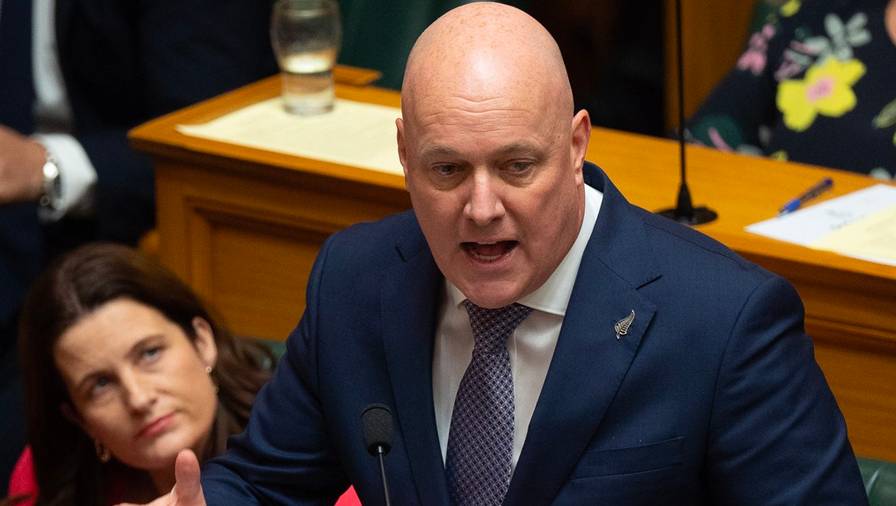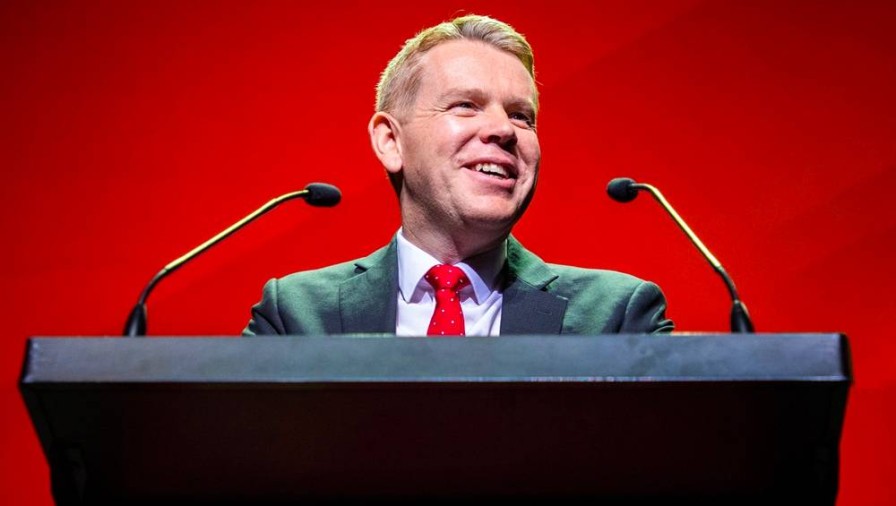Sovereignty and the Treaty, Green delay, user pays infrastructure
ANALYSIS: Backdrop to latest debate is Act’s Treaty Principles Bill.
WATCH: Grant Walker speaks with Brent Edwards
ANALYSIS: Backdrop to latest debate is Act’s Treaty Principles Bill.
WATCH: Grant Walker speaks with Brent Edwards
The Treaty of Waitangi debate continues to resonate, with northern iwi Ngāti Hine and Ngāti Manu writing an open letter to Prime Minister Christopher Luxon demanding he acknowledge Māori did not cede sovereignty to the Crown.
Then Labour Party leader Chris Hipkins agreed Māori had not ceded sovereignty.
It all came about from parliamentary Question Time a week earlier, when Green Party co-leader Chlöe Swarbrick asked Luxon whether he believed that Māori ceded sovereignty.
“Our position is the Crown is sovereign,” he replied.
Of course, much of it comes down to what is meant when different people talk about sovereignty. For instance, Māori might not be challenging the authority of a state to govern itself, which is the usual meaning of the term.
But that is state sovereignty, and iwi might consider they have the right to look after their own people under the Treaty, which was an agreement between them and the Crown. It purportedly guaranteed them rights and their lands but was broken repeatedly almost from day one by the Crown.
The backdrop to this latest debate is the looming introduction of Act’s Treaty Principles Bill, which has ignited at times divisive and bitter debate.

Prime Minister Christopher Luxon.
As difficult as it is to comprehend, it might still be possible to have a sovereign New Zealand state, but for iwi to exercise their own sovereignty within that state.
Indeed, the coalition Government has repeatedly said it wants, for instance, social and health services to be delivered directly by community groups, including iwi, rather than having everything delivered from Wellington.
Is that ceding sovereignty?
In Hipkins’ view, Māori did not cede sovereignty when the Treaty was signed, but that did not mean the Crown “doesn’t have sovereignty now”.
Hipkins then refers to Article two of the Treaty, which refers to tino rangatiratanga.
“Now, it doesn’t encapsulate into nice, neat little sound bites because there are going to be areas where it’s a bit messy as we work our way through what it looks like. But, simply saying, ‘let’s just stop all of that and start again’, in a way that writes Māori out of the picture – which is what the Treaty Principles Bill, based on the reports we’ve had so far, suggest the Government wants to do – I think it’s just the wrong approach,” the New Zealand Herald reported him saying.
The debate will likely get sharper and, potentially, more bitter when Act’s legislation is finally made public, even though Luxon has been unequivocal that the National Party will not support it beyond going to a select committee.

Labour Party leader Chris Hipkins.
Meanwhile, the Green Party’s planned special general meeting this Sunday has been delayed after its former MP Darleen Tana sought an interim injunction to stop the Greens deciding whether to dump her from Parliament using the waka jumping legislation.

Former Green MP Darleen Tana.
The saga has already dragged on for months and is set to drag out for at least a couple of more weeks until the substantive High Court hearing on September 12.
It is hard to fathom Tana’s motivation as she desperately holds on to her parliamentary lifeline. NBR presenter Grant Walker wonders whether it is a clever attempt to hold on to her parliamentary salary for a few more weeks.
It is clearly a frustration for the Green Party, which has been unable to put the matter behind it. Frustration was written all over Green Party co-leader Swarbrick’s face when she spoke to reporters on Thursday about the legal challenge.
This week, Infrastructure Minister Chris Bishop finally announced the new National Infrastructure Agency will be in place by the end of the year.
It will come alongside the publication of a 30-year pipeline of infrastructure projects, with the Government intending to brief political parties every six months on decisions to help build political consensus so projects are not scuppered every time there is a change of government.
Work on a 30-year pipeline started under Labour, with the Infrastructure Commission doing the work.
The idea of providing a pipeline is to give the infrastructure sector the confidence and certainty to invest for the future. Too often a large project finishes and, with nothing else on the horizon, skilled staff pack up and hop on a plane to another country where work is available. It means many projects start from scratch again because the skills and machinery are not always readily available.
A day later, Transport Minister Simeon Brown – speaking to the same Building Nations conference in Auckland – announced that road user charges would apply to the petrol-powered light vehicle fleet, probably from as early as 2027. Fuel taxes would be scrapped.

Light vehicles will start paying road user charges, probably from as early as 2027.
After doing the maths, Walker is particularly vexed by this decision. According to his calculations, his car uses 7 litres of fuel per 100 kilometres travelled. At the current tax rate of 75 cents per litre, its costs him $525 a year for travelling 10,000kms. However, if the road user charge comes in at $76 per 1000kms – the current rate for EVs – he would pay $760 a year, a $235 increase.
The Government is also keen on using toll roads much more and is paving the way for congestion charges.
It is all about the Government’s pivot to user pays for infrastructure as part of a wider policy to improve both the building of new infrastructure and the maintenance of existing assets.
There will be more about this in NBR’s infrastructure series, which starts on Monday and runs for the rest of the week.
Next week also, Parliament is in recess and Luxon is leading a business delegation to Malaysia and Korea, as he continues to “hustle” around the world to let everyone know New Zealand is open for business.
And, just to be clear, the Green Party is not meeting this Sunday.
Brent Edwards is NBR’s political editor.